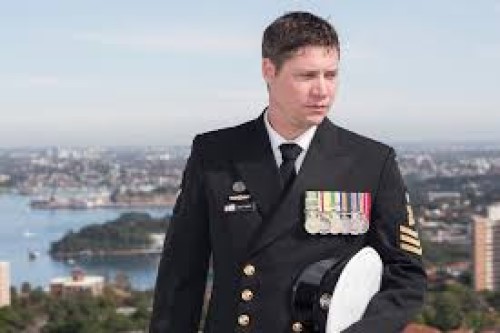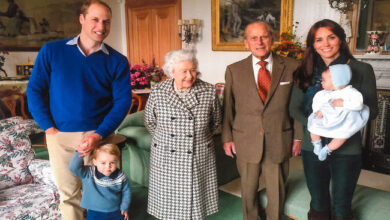David Finney: A Tragic Symbol of Veteran Mental Health Crisis

The story of David Finney, a Royal Australian Navy petty officer, represents the tragic reality faced by many veterans who struggle with mental health issues after their service. His untimely death by suicide in 2019 not only highlighted the gaps in support for military personnel but also spurred a national movement led by his mother, Julie-Ann Finney, to demand changes to the system. This article delves into the life of David Finney, the challenges veterans face, and the ongoing fight for better mental health support in Australia.
Early Life and Military Service
David Finney’s military career spanned 20 years, during which he served in several high-risk deployments including Iraq, Timor, and Bougainville. As a young man, David was driven by a strong sense of duty to his country, joining the Australian Defence Force (ADF) as a navy officer. His years of service were marked by distinction, but like many servicemen and women, he returned home carrying unseen scars.
Despite his long service, David, like many veterans, found it difficult to transition back into civilian life. The trauma of combat and the pressures of military service followed him home, and he began to experience the symptoms of post-traumatic stress disorder (PTSD). His struggles were compounded by the inadequacies of the support systems available for veterans.
The Battle with PTSD and the Healthcare System
In 2017, David Finney was medically discharged from the navy, after years of service. His discharge was not the end of his challenges; in fact, it marked the beginning of a new and painful chapter in his life. He began to experience severe mental health problems, including depression and PTSD. Although David sought help from the ADF’s mental health services, he was told there would be a six-month wait to see a psychiatrist. This long delay in receiving care highlights one of the key issues faced by many veterans—access to timely and adequate mental health support.
David’s mother, Julie-Ann Finney, later revealed that her son had been desperate for help but was ultimately failed by the system. David’s case is not unique. Since 2001, more than 400 Australian veterans have taken their own lives, a staggering number that underscores the deep-rooted problems in the way the nation handles the mental health needs of its military personnel.
A Mother’s Fight for Change
Following her son’s death in 2019, Julie-Ann Finney launched a campaign to bring attention to the crisis of veteran suicides in Australia. Her efforts were pivotal in gathering nearly 300,000 signatures for a Change.org petition, demanding a Royal Commission into veteran suicides. The petition called for an investigation into the systemic failures that contributed to her son’s death and the deaths of many other veterans.
Julie-Ann’s relentless advocacy eventually led to the establishment of a Royal Commission into Defence and Veteran Suicide in 2021. Her fight for justice for her son and others like him became a symbol of the broader struggle for veteran rights in Australia. In her own words, the system was “broken,” and the Royal Commission became a vital step toward understanding how these failures could be addressed to prevent further tragedies.
The Royal Commission and Its Findings
The Royal Commission into Defence and Veteran Suicide was officially launched in July 2021, with a mandate to investigate the systemic issues contributing to the high suicide rate among veterans. The inquiry examined various aspects, including the role of the Department of Veterans’ Affairs (DVA), the adequacy of mental health services for veterans, and the broader cultural and structural challenges within the ADF.
One of the key findings of the commission was the inadequacy of support for veterans transitioning back to civilian life. Many veterans, like David, are left to navigate the complexities of the healthcare system on their own, often without the necessary guidance or timely intervention. The commission also highlighted the need for better mental health services, including reducing wait times and improving access to care for veterans in crisis.
The Impact of David Finney’s Story
David Finney’s story has had a profound impact on the national conversation about veteran suicide and mental health. His mother’s campaign has brought the issue to the forefront of public consciousness, leading to significant policy changes and a renewed focus on the mental health needs of veterans.
While the Royal Commission is a step in the right direction, there is still much work to be done. The findings of the inquiry have provided a roadmap for improving the support systems in place for veterans, but the implementation of these recommendations will require sustained effort from both the government and the wider community.
The Way Forward: Supporting Veterans
David Finney’s legacy continues to inspire change in the way Australia addresses the mental health needs of its veterans. One of the most important lessons from his story is the need for timely and accessible mental health care. Veterans, particularly those who have served in high-stress and combat roles, are at a significantly higher risk of developing mental health issues. Ensuring that these individuals receive the care they need is not just a matter of policy—it is a moral obligation.
The Royal Commission’s recommendations include increasing funding for mental health services, improving the transition process for discharged personnel, and creating a more supportive environment for veterans. These changes are critical to ensuring that no more veterans fall through the cracks of a broken system.
Conclusion
David Finney’s tragic death serves as a sobering reminder of the mental health crisis facing veterans in Australia. His story, and the tireless advocacy of his mother, have led to meaningful change, but the fight is far from over. The Royal Commission into Defence and Veteran Suicide has laid the groundwork for reform, but it is up to the government and the public to ensure that these changes are implemented.
As a nation, it is essential to honor the sacrifices made by veterans like David Finney by providing them with the support they need to lead healthy and fulfilling lives. The legacy of David Finney must be one of hope and progress, as we work to ensure that no more veterans are lost to suicide.



